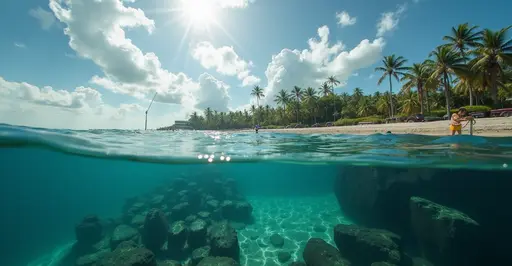
Tourism Platforms Integrate Eco-Credits
Global travel booking platforms have begun integrating carbon offsetting features directly into their apps, allowing users to earn eco credits for every itinerary. This innovation comes as the travel industry faces increasing pressure to address its environmental impact, which accounts for approximately 8% of global carbon emissions.
How Carbon Offsetting Works
When users book flights, hotels, or activities through apps like TravelPerk, Booking.com, and Expedia, they're now presented with an option to add carbon offsetting to their purchase. The systems automatically calculate emissions based on:
- Distance traveled
- Transportation mode (plane, car, train)
- Accommodation energy consumption
- Trip duration
Users can purchase verified carbon credits that fund environmental projects like reforestation in the Amazon, wind farms in India, or methane capture at landfills. Major platforms use standards like VERRA's Verified Carbon Standard (VCS) to ensure legitimacy.
Leading Platforms and Features
TravelPerk's GreenPerk API leads business travel solutions, allowing companies to offset emissions for less than 1% of trip costs. Their dashboard tracks carbon savings across all employee travel. Consumer apps like Booking.com now feature a "Sustainable Travel" badge showing eco-certified properties and automatic offset options at checkout.
The International Civil Aviation Organization's CORSIA scheme has driven airline adoption, with carriers like Delta and Lufthansa integrating offset options directly into their booking flows. New startups like Sustainable Travel International offer specialized carbon calculators for complex itineraries.
Carbon Credit Controversies
Despite growing adoption, carbon offsetting faces criticism. Investigations by The Guardian found some forest conservation projects dramatically overstate their carbon savings. "Phantom credits" - those that don't represent real emissions reductions - remain a concern in voluntary markets.
ICAO's CORSIA program addresses this through strict eligibility criteria requiring:
- Third-party verification
- Additionality (proving reductions wouldn't happen otherwise)
- Permanence guarantees
- Transparent registry tracking
The Future of Sustainable Travel
Industry analysts predict carbon-offsetting will become as standard as baggage options by 2030. Emerging technologies like blockchain are being tested for transparent credit tracing. However, experts emphasize that reduction should precede offsetting. "Carbon credits are a bridge solution while we develop sustainable aviation fuels and electric planes," says climate scientist Dr. Lena Schmidt.
New EU regulations taking effect in 2026 will require all major travel platforms operating in Europe to offer certified offset options, accelerating global adoption. With tourism expected to double by 2040, these innovations represent critical steps toward decarbonizing travel.

 Nederlands
Nederlands
 English
English
 French
French
 Deutsch
Deutsch
 Espaniol
Espaniol
 Portugese
Portugese








